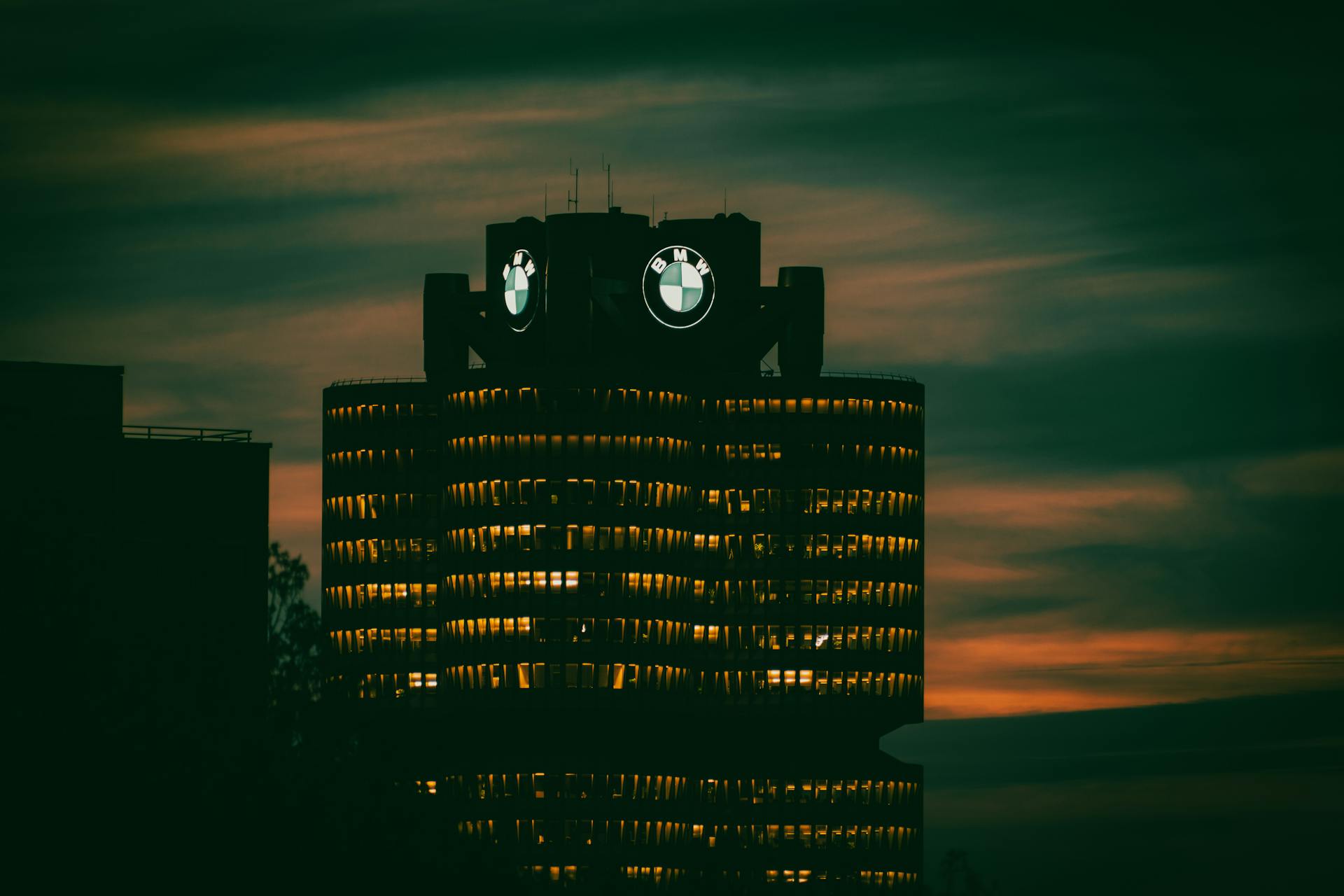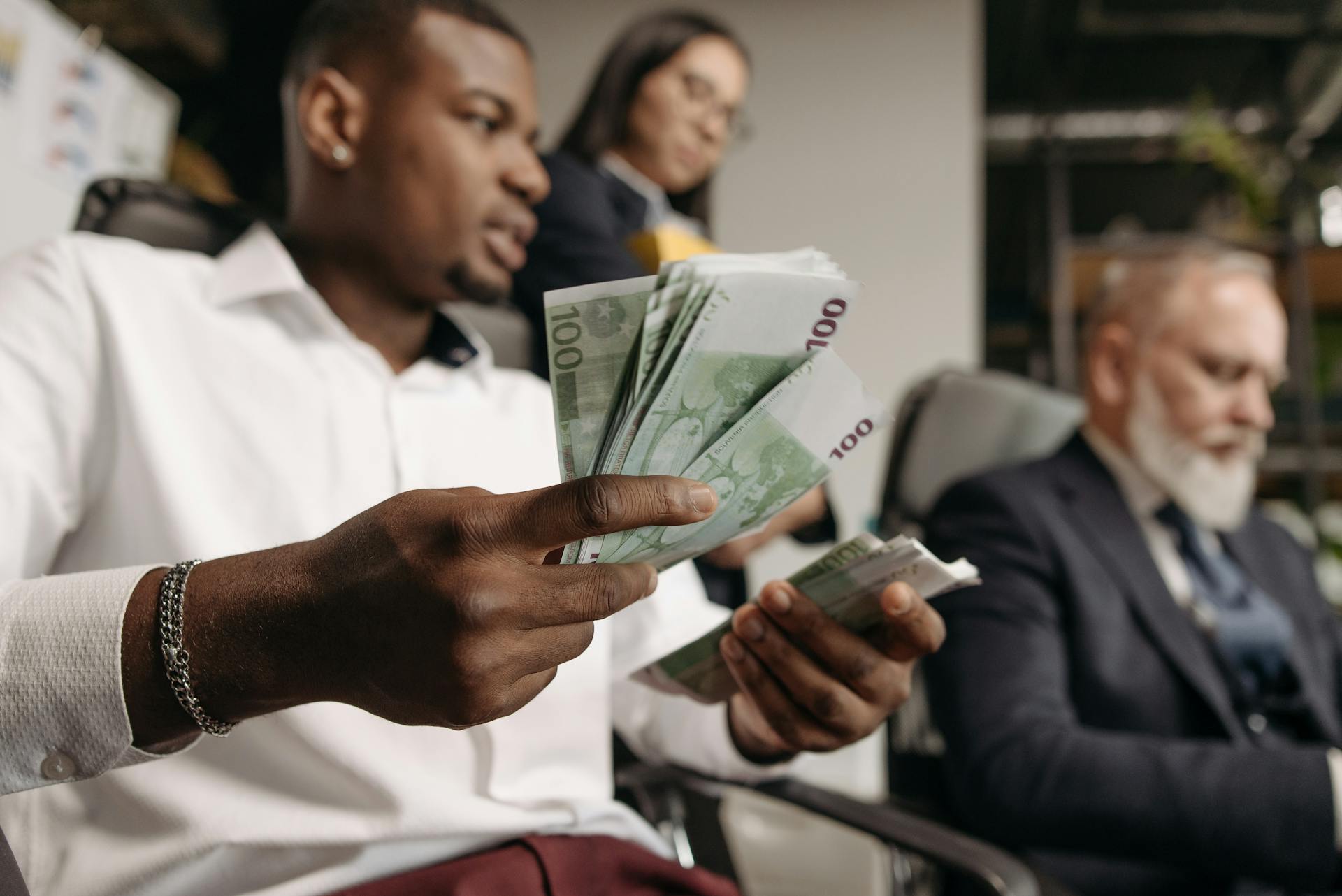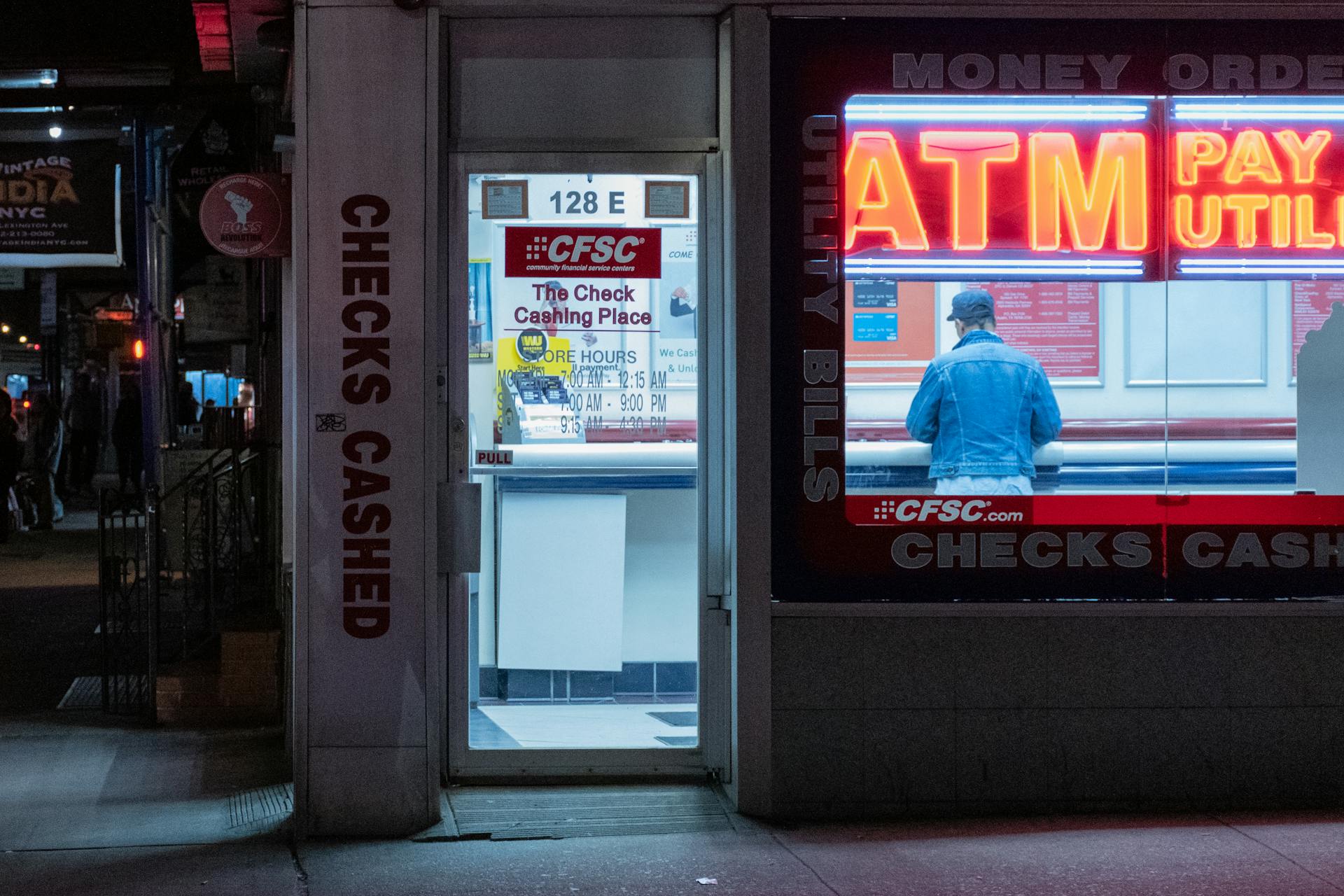
Fake Bank of America cashier's checks are being used to scam people out of their hard-earned money. These checks are often used to fund online purchases or pay for services.
Be cautious of cashier's checks that are sent to you by someone you don't know, as this is a common tactic used by scammers. In some cases, the checks are even made to look like they're from Bank of America.
Scammers will often ask you to pay for a service or make a purchase before you receive the check, and then claim that the check was lost or stolen. This can cause a lot of financial stress and damage to your credit score.
Readers also liked: How Often Does Medicaid Check Your Bank Account
What to Know
If you're dealing with a fake Bank of America cashier's check, be aware that scammers often send fake checks for more than the amount of purchase or to cover processing fees, shipping costs, or other expenses.
Intriguing read: Fake Electronic Check
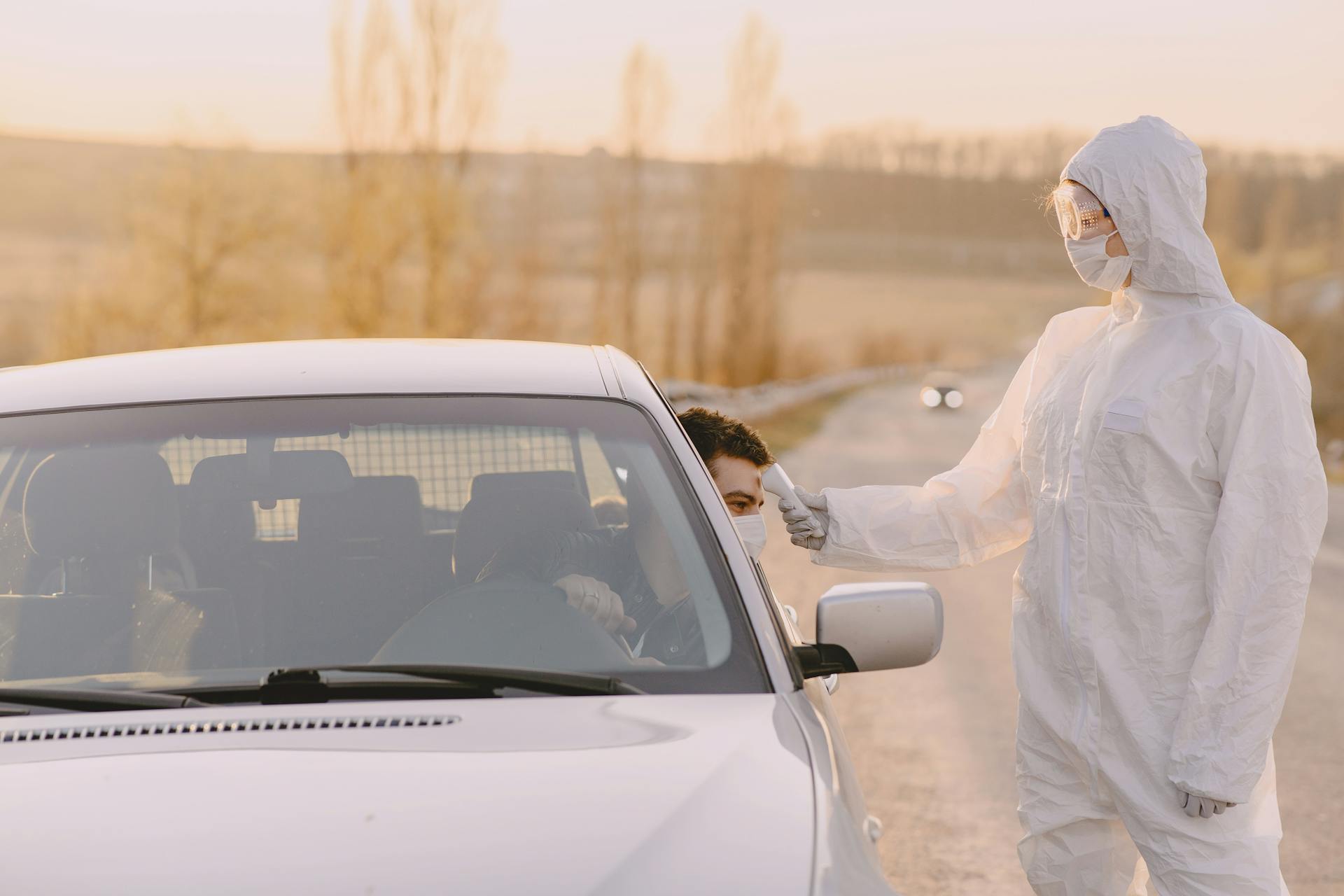
They'll instruct you to cash the check or money order and send a portion of the money by wire, which is a huge red flag. This is a classic move by con artists.
Be cautious if a caller or email appears to originate from overseas, as this can be a sign of a scam. The email message may be full of typing errors, making it look suspicious.
If you're asked to wire money, don't do it. Once you wire money, it can be picked up immediately, and you may not be able to get your money back.
Here are some red flags to watch out for:
- You are asked to wire money.
- You are sent a check in connection with a payment request.
- The contact indicates a confirmation code or money transfer control number (MTCN) is needed before your money can be withdrawn.
- A caller or email appears to originate from overseas.
- The person communicates via TTY service.
Why Scams Work
Scams work because fake checks often look just like real checks, even to bank employees. They may be printed with the names and addresses of legitimate financial institutions, making them very convincing.
It can take weeks for a bank to figure out that the check is a fake. This is because the scammers have done their research and made the fake checks look legitimate.
Scammers may even use real checks written on bank accounts that belong to someone whose identity has been stolen. This adds an extra layer of authenticity to the fake checks.
On a similar theme: Fake Citizens Bank Check
Warning Signs of a Scam
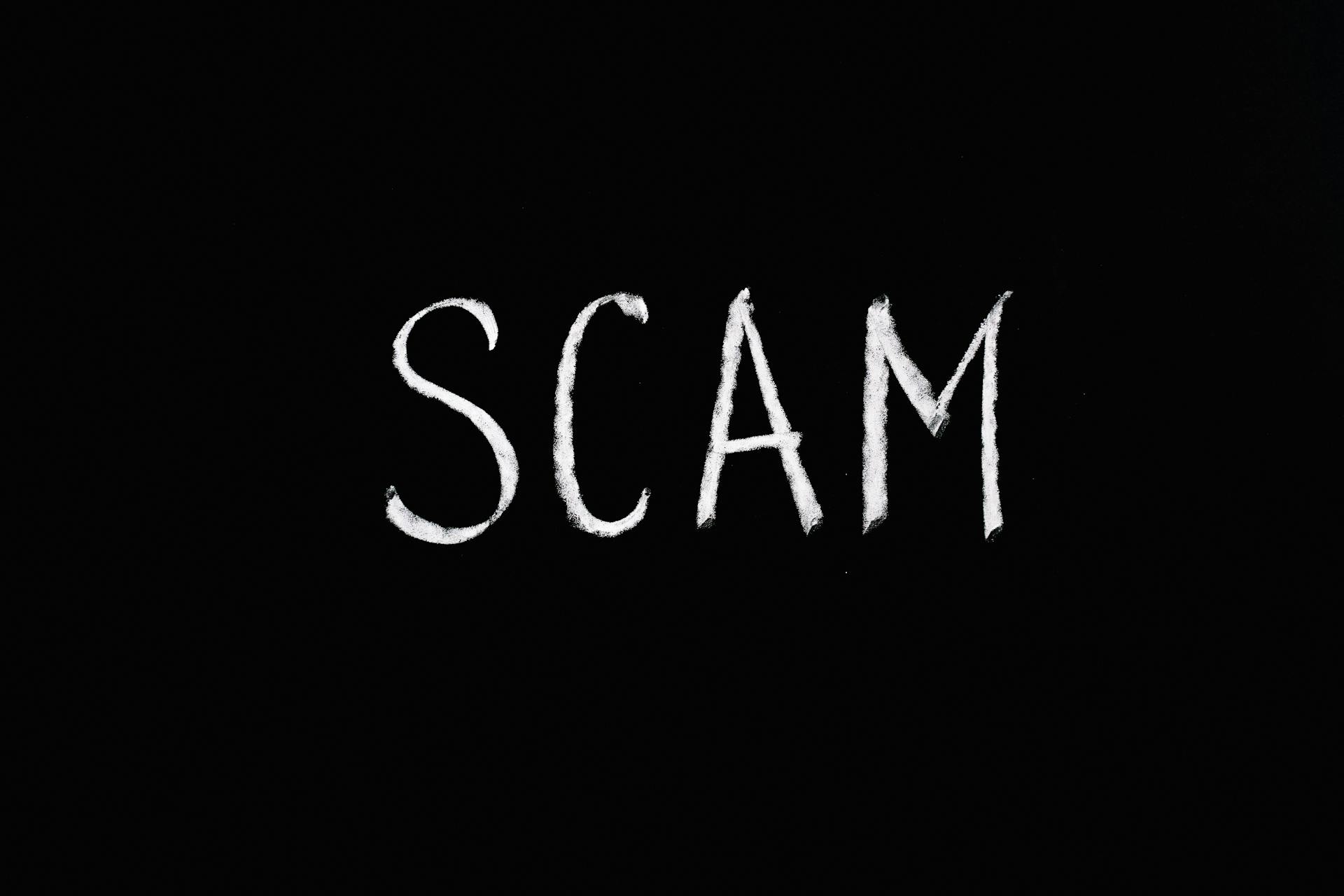
If someone asks you to wire money, it's a red flag. This is a common tactic used by scammers to get their hands on your cash.
You should be wary if someone sends you a check in connection with a payment request. This is often a fake check, and the scammer will ask you to cash it and send them a portion of the money by wire.
Be cautious if you're asked to provide a confirmation code or money transfer control number (MTCN) before your money can be withdrawn. This is a blatant lie, and once you wire money, it can be picked up immediately.
Scammers often communicate via TTY service, which disguises thick accents and makes calls untraceable. They may also use email to follow up on their correspondence.
Here are some warning signs of a scam to watch out for:
- You are asked to wire money.
- You are sent a check in connection with a payment request.
- The contact indicates a confirmation code or money transfer control number (MTCN) is needed before your money can be withdrawn.
- A caller or email appears to originate from overseas.
- The person communicates via TTY service.
Protect Yourself
Never use money from a check to send gift cards, money orders, cryptocurrency, or to wire money to anyone who asks you to. This is a common tactic used by scammers to get their hands on your hard-earned cash.
Broaden your view: Cash Machine Giving Out Free Money
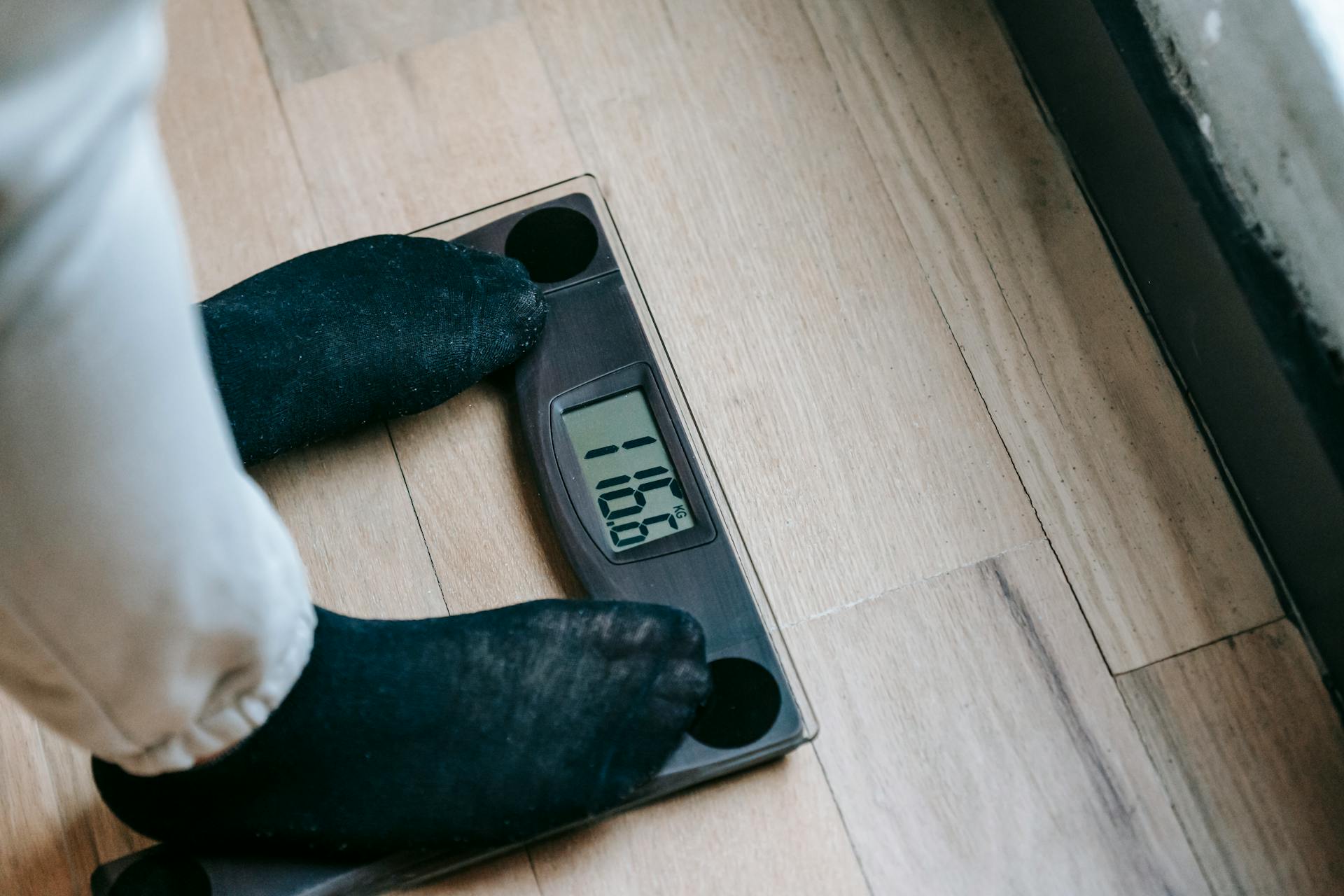
Toss offers that ask you to pay for a prize. If it's free, you shouldn't have to pay to get it. Scammers will often ask you to pay a fee to collect a "free" prize, which is a clear red flag.
Don't accept a check for more than the selling price. If someone offers you a check for more than what you're selling something for, it's likely a scam.
Here are some common fake cashier's check scams to watch out for:
By being aware of these common tactics, you can protect yourself from falling victim to fake Bank of America cashier's check scams.
Frequently Asked Questions
How do you verify a bank of America cashier's check?
Verify a Bank of America cashier's check by contacting the bank directly, not the phone number on the check, and confirm its authenticity with their customer service team
What does a fake bank of America cashier's check look like?
A fake Bank of America cashier's check may have a blank payee line or a missing phone number for the issuing bank. If you suspect a check is fake, verify the information with Bank of America directly
What happens if I deposit a fake cashier check?
Depositing a fake cashier check can lead to financial losses, including bounced deposits and unrecoverable funds sent to scammers
Sources
- https://www.seattlepi.com/local/article/Counterfeit-cashier-s-checks-being-used-in-scams-1148664.php
- https://consumer.ftc.gov/articles/how-spot-avoid-report-fake-check-scams
- https://www.gobankingrates.com/banking/banks/what-bank-of-america-money-order-fee/
- https://www.atg.wa.gov/wire-transfer-scams
- https://abc7amarillo.com/news/local/dont-bank-on-cashiers-check-received-in-the-mail
Featured Images: pexels.com
